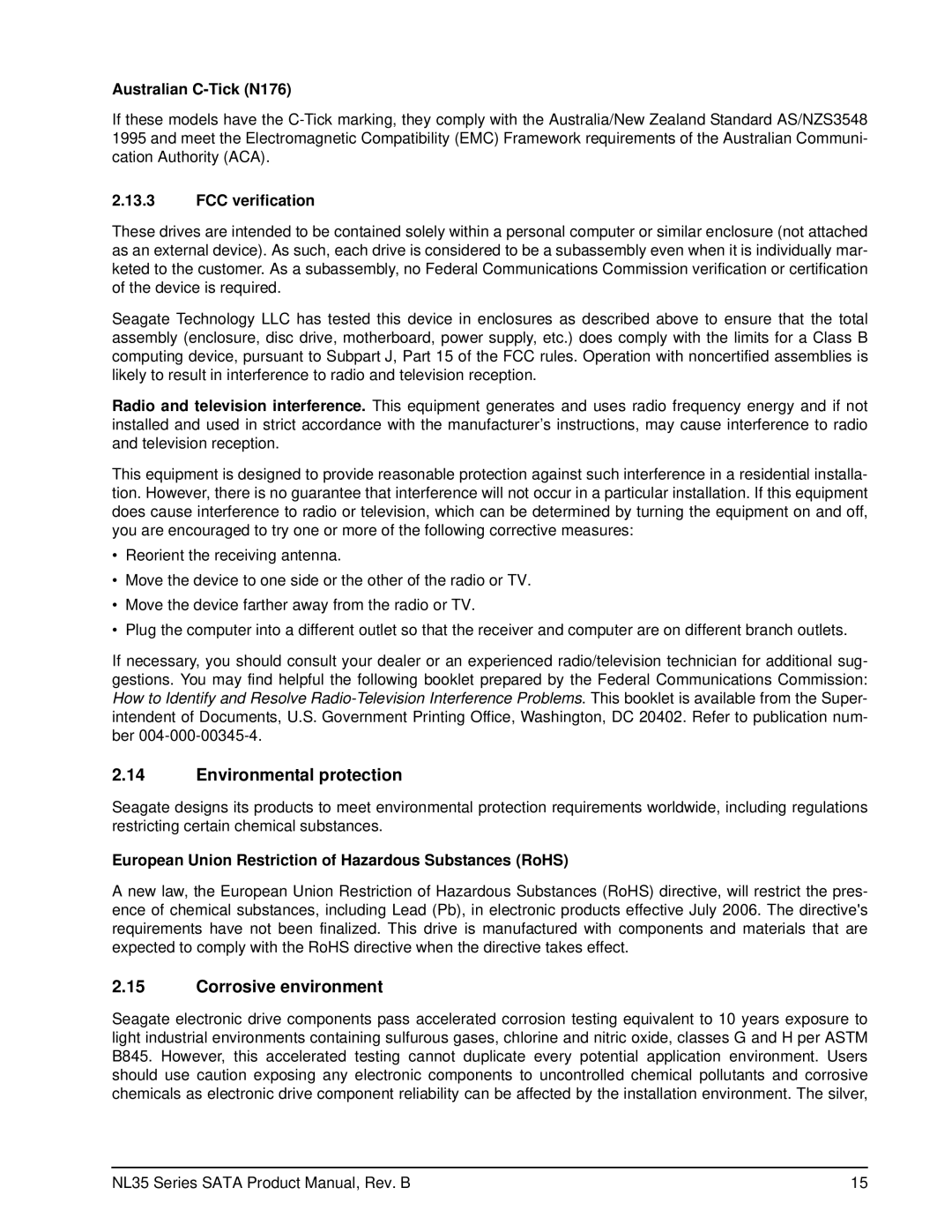Australian C-Tick (N176)
If these models have the
2.13.3FCC verification
These drives are intended to be contained solely within a personal computer or similar enclosure (not attached as an external device). As such, each drive is considered to be a subassembly even when it is individually mar- keted to the customer. As a subassembly, no Federal Communications Commission verification or certification of the device is required.
Seagate Technology LLC has tested this device in enclosures as described above to ensure that the total assembly (enclosure, disc drive, motherboard, power supply, etc.) does comply with the limits for a Class B computing device, pursuant to Subpart J, Part 15 of the FCC rules. Operation with noncertified assemblies is likely to result in interference to radio and television reception.
Radio and television interference. This equipment generates and uses radio frequency energy and if not installed and used in strict accordance with the manufacturer’s instructions, may cause interference to radio and television reception.
This equipment is designed to provide reasonable protection against such interference in a residential installa- tion. However, there is no guarantee that interference will not occur in a particular installation. If this equipment does cause interference to radio or television, which can be determined by turning the equipment on and off, you are encouraged to try one or more of the following corrective measures:
•Reorient the receiving antenna.
•Move the device to one side or the other of the radio or TV.
•Move the device farther away from the radio or TV.
•Plug the computer into a different outlet so that the receiver and computer are on different branch outlets.
If necessary, you should consult your dealer or an experienced radio/television technician for additional sug- gestions. You may find helpful the following booklet prepared by the Federal Communications Commission: How to Identify and Resolve
2.14Environmental protection
Seagate designs its products to meet environmental protection requirements worldwide, including regulations restricting certain chemical substances.
European Union Restriction of Hazardous Substances (RoHS)
A new law, the European Union Restriction of Hazardous Substances (RoHS) directive, will restrict the pres- ence of chemical substances, including Lead (Pb), in electronic products effective July 2006. The directive's requirements have not been finalized. This drive is manufactured with components and materials that are expected to comply with the RoHS directive when the directive takes effect.
2.15Corrosive environment
Seagate electronic drive components pass accelerated corrosion testing equivalent to 10 years exposure to light industrial environments containing sulfurous gases, chlorine and nitric oxide, classes G and H per ASTM B845. However, this accelerated testing cannot duplicate every potential application environment. Users should use caution exposing any electronic components to uncontrolled chemical pollutants and corrosive chemicals as electronic drive component reliability can be affected by the installation environment. The silver,
NL35 Series SATA Product Manual, Rev. B | 15 |
